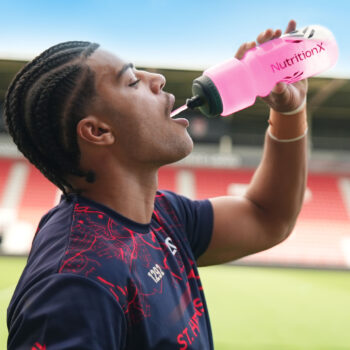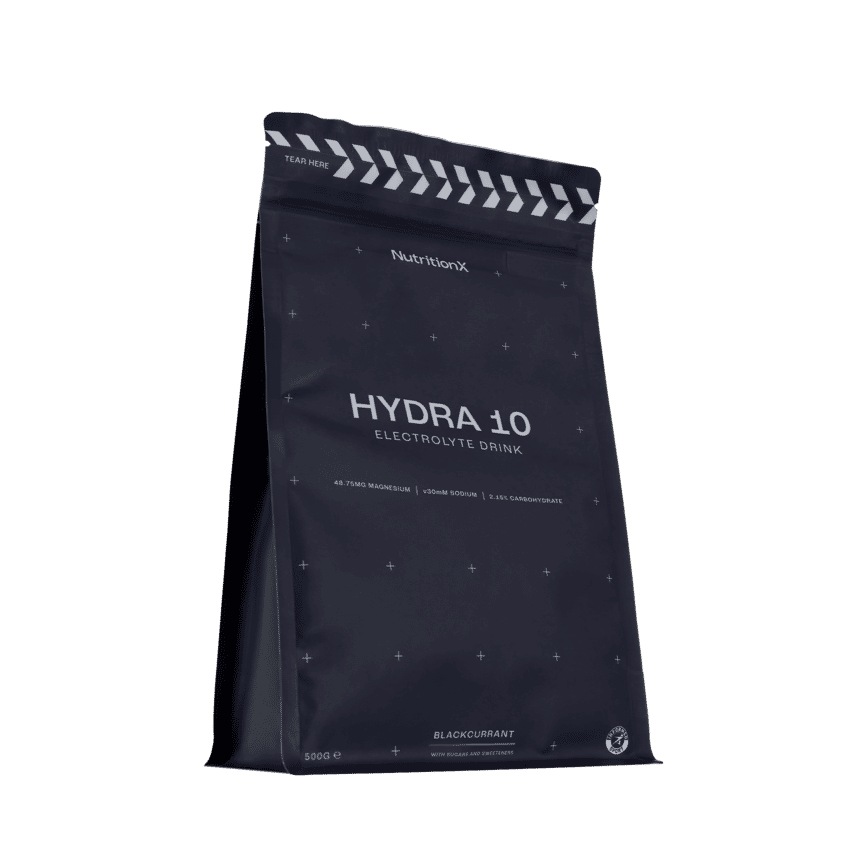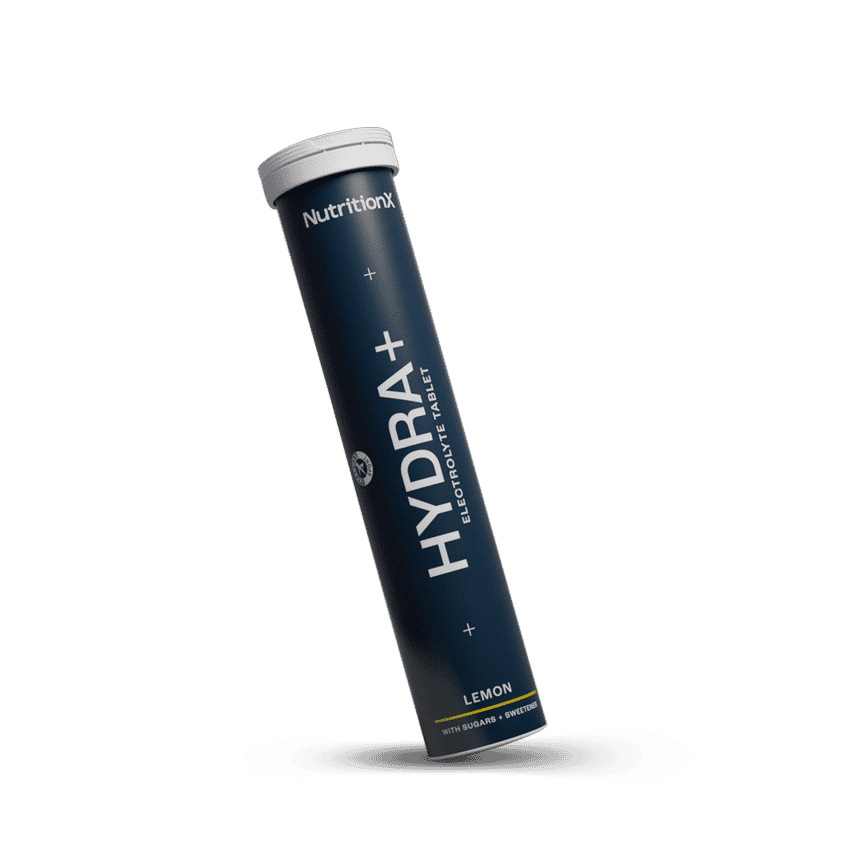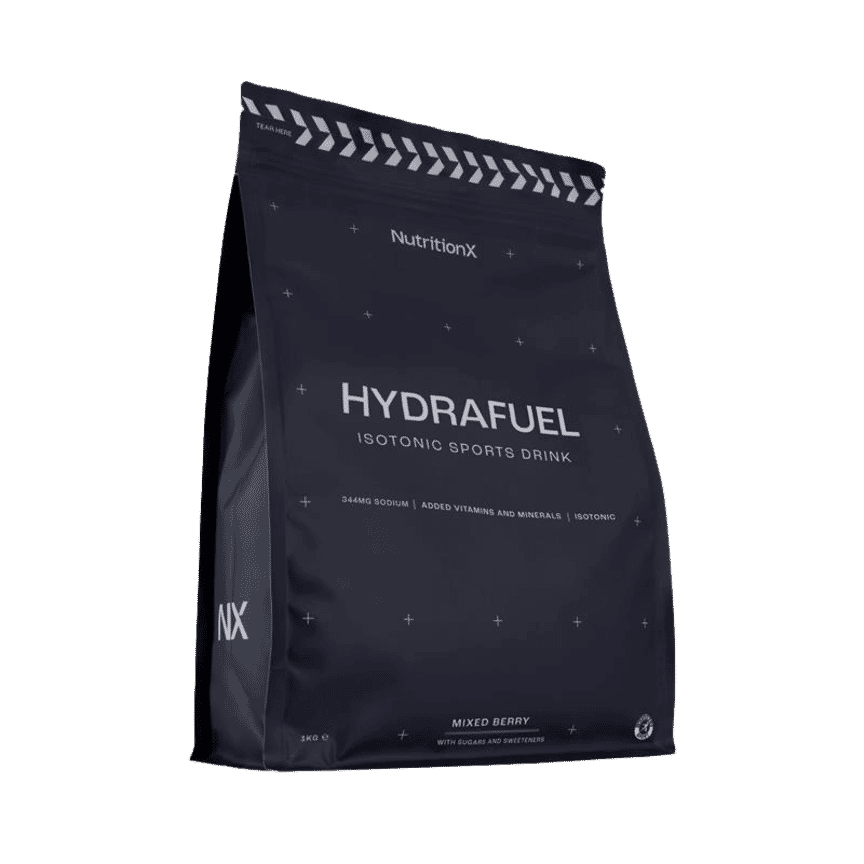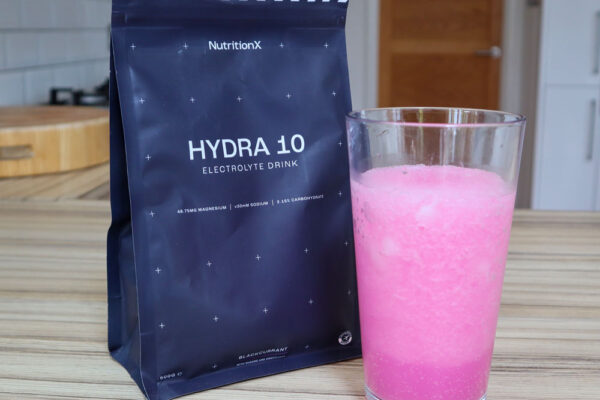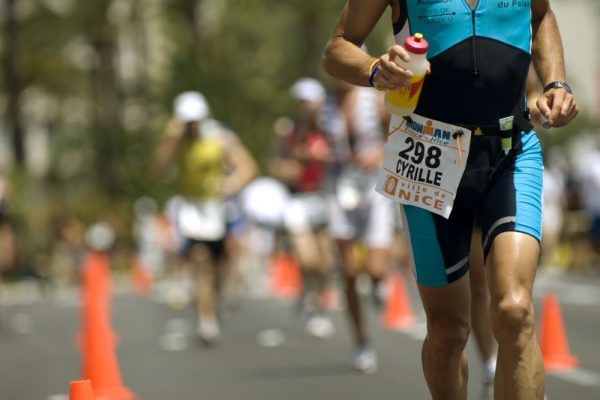When it comes to sports performance, most athletes are well-versed in the importance of protein for muscle repair, carbohydrates for fuelling workouts and hydration to maintain endurance. But there’s another key player that doesn’t always get the spotlight they deserve: electrolytes. These charged minerals are crucial for performance, recovery and overall health - but how important are they really, and should all athletes be taking electrolyte supplements?
What are electrolytes?
Electrolytes are electrically charged minerals found in your blood, sweat and urine that help to regulate numerous bodily functions. The key electrolytes include sodium, potassium, magnesium, calcium and chloride. These minerals are responsible for maintaining fluid balance, conducting nerve impulses, supporting overall cardiovascular health and muscle function, making them absolutely vital for athletes and athletic performance.
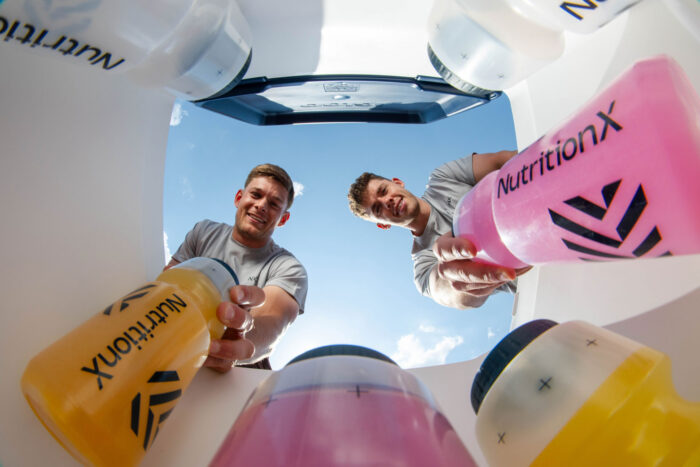
What function do electrolytes play in the body?
Electrolytes help to conduct electrical impulses that control muscle contractions and nerve signalling. They regulate fluid balance both inside and outside your cells, maintain blood pH and support cellular communication. Sodium, in particular, helps to maintain blood pressure and fluid retention during exercise, whilst potassium and magnesium support muscle contraction and recovery. Even a minor imbalance can affect performance or lead to symptoms like cramping, fatigue and dizziness.
What affects electrolyte levels in the body?
Electrolyte levels fluctuate based on hydration status, diet, sweat rate, physical activity and even climate. Factors like high heat, heavy exercise, illness (especially gastrointestinal issues), or a low-mineral diet can all cause imbalances. Diuretics (including alcohol), poor recovery nutrition and certain medications may also deplete electrolyte stores in the body.
Does sweat impact electrolyte levels?
Absolutely – and significantly so. When you sweat, your body loses not only water but also substantial amounts of electrolytes, particularly sodium and chloride. According to the latest research), athletes can lose between 4190–1628 mg of sodium per litre of sweat (Baker et al., 2016), but the exact amount varies widely depending on individual factors, exercise intensity and environmental conditions. The more intense or prolonged the activity and the hotter the environment, the greater the losses could be.
How do electrolytes impact athletic performance?
Electrolyte imbalances – especially sodium depletion – can lead to muscle cramping, early fatigue, reduced endurance, impaired concentration and can increase the risk of heat related illnesses. The replenishment of sodium and fluid during exercise can help maintain fluid balance and improve performance capacity in endurance athletes (Veniamakis et al., 2022). Maintaining optimal electrolyte levels helps to delay fatigue, improves neuromuscular function and supports cardiovascular stability under exertion.
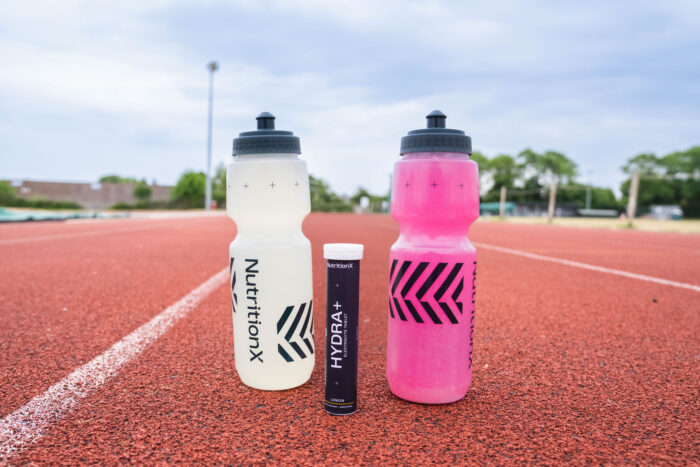
What benefits do electrolytes have on athletic performance?
Proper electrolyte intake can help with multiple aspects of athletic performance, particularly in hot conditions or during intense training sessions, when sweat rate is naturally higher. Adequate electrolyte balances in the body can delay the onset of muscle fatigue and possibly avoid cramping, as well as improve thermoregulation in hot conditions - effectively helping athletes keep performance levels at an optimal level. They can also help to maintain mental sharpness and reaction time, as well as support faster recovery post-exercise. Electrolyte intake reduces the risk of exercise-associated hyponatraemia (EAH) – a condition caused by overhydration and low blood sodium – which is particularly relevant in endurance sports like marathon running, triathlon or long-distance cycling.
When should athletes consider supplementing with electrolytes?
Athletes should consider supplementation under multiple conditions and across multiple disciplines. Most notably, electrolyte supplementation and adequate fluid intake is a good idea for athletes when training or competing in hot/humid environments, when a high sweat rate is present or when engaging in prolonged exercise (>60–90 minutes). Electrolyte supplements are also recommended for athletes who are experiencing frequent muscle cramps, or when recovering from gastrointestinal illness (vomiting/diarrhoea).
Can you get enough electrolytes through diet alone?
In many cases, it’s possible to get the electrolytes you need—like sodium, potassium, magnesium and calcium—through a well-balanced diet, with foods such as leafy greens, dairy, bananas, nuts, and salt all playing a role. However, for athletes training intensely, sweating heavily, or competing in hot environments, diet alone may not be enough to replenish rapid electrolyte losses. Whilst whole foods lay the foundation, targeted electrolyte supplementation can help bridge the gap during or after prolonged exercise when electrolyte needs spike.
What are the best electrolyte supplements?
Look for supplements that provide a balanced mix of sodium, potassium, calcium and magnesium. Nutrition X HydraFuel, for example, is scientifically formulated to deliver a clinical dose of electrolytes along with carbohydrates to support both rehydration and energy replenishment. Be wary of products with excessive sugar or insufficient sodium; sodium is the primary electrolyte lost in sweat and must be adequately replaced.
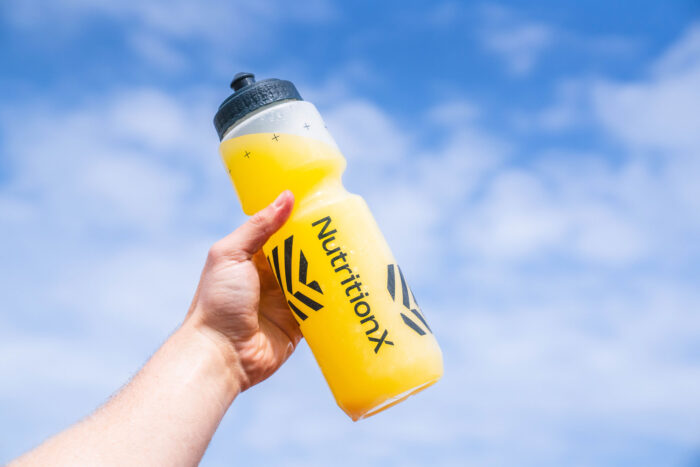
What are the different types of electrolyte drinks?
Electrolyte drinks typically come in:
- Hypotonic: Contains a low amount of carbohydrate and is formulated for rapid hydration, making it perfect for short, high-intensity activities. Choose this option when your primary goal is re/hydration rather than carbohydrate replenishment or energy fueling.
- Isotonic: Features a balanced mix of carbohydrates and electrolytes, providing both fluid and energy replacement. Ideal for moderate to high-intensity workouts or extended exercise sessions.
- Hypertonic: Contains a high concentration of carbohydrates. Whilst they aid in restoring fluids lost through sweat, their absorption is slower compared to isotonic or hypotonic drinks because of the high sugar content. These drinks are best suited for post-exercise recovery or during prolonged endurance events when rapid energy replenishment is essential.
Tablet-based electrolyte supplements, powders and ready-to-drink solutions all serve different needs. Choose based on duration, intensity and personal sweat rate.
When and how should athletes supplement with electrolytes?
For sessions under 60 minutes, water may be sufficient unless the athlete is training in heat or sweats heavily. For longer or intense training, an electrolyte-rich isotonic drink during and post-exercise is ideal. Pre-loading with electrolytes and fluids before competition may also help if the event is in hot conditions, the athlete is a heavy sweater or has a history of cramping.
Do all athletes need electrolytes?
Not all athletes need to supplement with electrolytes, but many can benefit depending on factors like training duration, intensity, environment and individual sweat rate. Those doing short, low-intensity sessions in cooler conditions may meet their needs through diet and water alone. However, athletes training for over an hour, sweating heavily, or competing in hot climates are at greater risk of electrolyte depletion, which can lead to cramps, fatigue and even hyponatraemia. In these cases, supplementing with electrolytes and having the right fluid intake protocol becomes not just beneficial, but essential for performance and safety. So, whilst it’s not one-size-fits-all, strategic electrolyte use can be a game-changer for many athletes.



